Patient Empowerment Program: A Rare Disease Podcast
Join the nano-rare disease community! Interviews features leading physicians, scientists, biotech experts, and patient advocates. Lessons teach core concepts about drugs. Our host Dr. Crooke has led the creation of antisense technology and his foundation, n-Lorem, is using this powerful technology to discover, develop, and provide personalized experimental antisense oligonucleotide medicines to nano-rare patients for free, for life. n-Lorem is a non-profit organization established to apply the efficiency, versatility and specificity of antisense technology to charitably provide experimental antisense oligonucleotide (ASO) medicines to treat patients (less than 30 patients) that are the result of a single genetic defect unique to only one or very few individuals. The advantage of experimental ASO medicines is that they can be developed rapidly, inexpensively and are highly specific. n-Lorem was founded by Dr. Stan Crooke, who founded IONIS Pharmaceuticals in 1989 and, through his vision and leadership, established the company as the leader in RNA-targeted therapeutics. The podcast is produced by n-Lorem Foundation and hosted by Dr. Stanley T. Crroke, who is the Founder, CEO and Chairman. Our videographer is Jon Magnuson. Our producers are Kira Dineen, Jon Magnuson, Kim Butler, and Amy Williford. To learn more about n-Lorem, visit nlorem.org. Contact us at podcast@nlorem.org.
Episodes
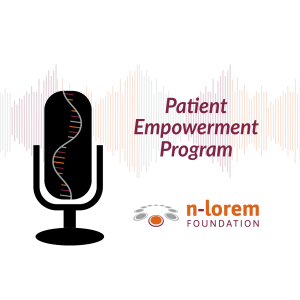
Wednesday Nov 29, 2023
Wednesday Nov 29, 2023
Jeff Carroll, Ph.D., inherited a gene that will eventually lead to symptoms of Huntington’s Disease. Alongside researching this debilitating disease as an Associate Professor of Neurology at the University of Washington, he’s a Scientific Advisor for n-Lorem and member of the Access to Treatment Committee (ATTC) that helps screen and assess submitted patient applications.On This Episode We Discuss:2:45 Joining the Amy on a whim 4:30 Serving in Kosovo and Germany6:00 Learning that his mother was diagnosed with Huntington’s disease (HD)10:25 Seeking information and diving into the world of Biology and HD14:52 Deciding to have children when there was a chance that they’d inherit the disease and utilizing preimplantation genetic diagnosis (PGD)18:30 Watching Ionis make initial progress on an ASO for Huntington’s disease23:10 How Jeff became involved with n-Lorem27:30 Most important things Jeff has learned during his role at n-Lorem30:38 Helping people is motivating32:11 Nano-rare patients teach us a lot about science33:57 Jeff expects to receive an ASO treatment one day35:22 n-Lorem is on your side
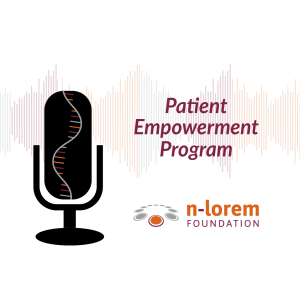
Wednesday Nov 08, 2023
Wednesday Nov 08, 2023
Chip Wilson, the creator of Lululemon and SOLVE FSHD, stands as a pioneer, business innovator, philanthropist, and a person affected by a rare disease. His passion for fitness led him to build a successful career in designing athletic wear, but a diagnosis of Facioscapulohumeral Muscular Dystrophy (FSHD), a degenerative muscle condition, altered his active lifestyle.On This Episode We Discuss:0:46 Working on the Alaska Oil Pipeline as a 17-year-old4:30 Saving money young and becoming an entrepreneur7:05 Following trends and founding Lululemon8:36 Chip’s initial dream and vision for Lululemon11:45 Combining Italian design ethics with quality western fabrics for an amazing Lulu product 14:20 The feeling of leaving the Lululemon Board of Directors 17:00 The takeaways from Joseph Heller’s Catch 22 and Something Happened 24:15 Reading the top 100 biographies and admiring those with integrity 33:44 Using the culture of an organization and leadership as a strategic advantage 38:18 Facioscapulohumeral muscular dystrophy (FSHD) 40:05 Chip on losing muscle when exercise and movement is so necessary for his way of life 44:27 Climbing Mount Kilimanjaro with FSHD 46:58 Chip’s advice to those suffering from rare diseases and their caregivers 49:24 What progress that has been made to find a treatment for FSHD 52:35 Why Chip and SOLVE FSHD donated to help fund the funded the laboratory at n-Lorem
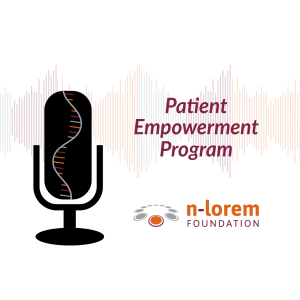
Wednesday Oct 18, 2023
Wednesday Oct 18, 2023
The Autonomic Nervous System automatically controls essential processes whether you’re awake or asleep. It’s the employee of the month. It gets the job done at any time of the day without you even having to ask it. It is our body’s autopilot system, controlling functions we often take for granted, like heart rate, digestion, pupil dilation, and even breathing! Life would be pretty hard on manual.On This Episode We Discuss:“I Sing The Body Electric”Hemo and chemo-electric machinesThe nervous systemsAutonomic nervous system manages many organs and involuntary functionsSympathetic and parasympathetic nerves
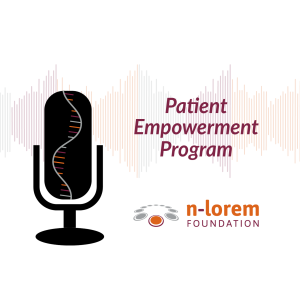
Wednesday Oct 04, 2023
Wednesday Oct 04, 2023
Dr. Daniel Curran leads Takeda’s efforts to unlock innovation and deliver transformative medicines in a variety of rare-disease areas. Dan embraces learning from, collaborating with, and meeting members of the rare disease community in an effort to produce treatments that result in better health and a brighter future for rare.2:02 How rare disease is defined at Takeda4:10 Rare disease units at Takeda5:23 How Takeda economically justifies half of their pipeline being rare disease drugs9:06 The price of rare disease drugs is too high12:15 Why rare disease efforts are often associated with hematology14:57 What Dr. Curran enjoys about leading Takeda's rare genetics and hematology therapeutic unit16:42 Dr. Curran's professional journey20:50 Takeda's choice to support n-Lorem

Wednesday Sep 20, 2023
Wednesday Sep 20, 2023
As the first ever Nano-rare Patient Colloquium is just around the corner, we are flipping the script. Spectrum News’ Brady Huggett interviews n-Lorem founder and CEO, Dr. Stan Crooke, and picks his mind to understand the inspiration behind the creation and want for this first of its kind nano-rare community event. Along with some background information on the highly anticipated Colloquium, Stan candidly conveys n-Lorem's hurdles and joys in its first four years of service.
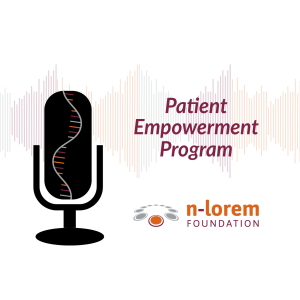
Wednesday Aug 23, 2023
Wednesday Aug 23, 2023
Liver disease is a broad term encompassing a range of conditions that affect the liver's structure and function. The liver is extremely important as it wears many different hats when it comes to your body functioning properly like controlling metabolism, storing and breaking down nutrients for use, detoxification and more! No wonder there are many diseases associated with liver disfunction including various genetic ones. Get ready to explore... you guessed it, various diseases of the liver! On this episode we discuss:Controlling inflammatory processesLiver failureGenetic disease pathwaysDrug metabolismFatty liverBlood tests signal liver disfunction
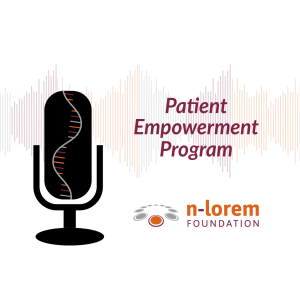
Wednesday Aug 09, 2023
Wednesday Aug 09, 2023
The liver is a master chemist that sends copious signals to help control our appetite and breaks down fats to be stored and used as energy and to combat starvation. Next time you’re hangry, think of your liver kicking into overdrive.On This Episode We Discuss:Producing countless small chemical metabolitesControlling iron homeostasisThe liver and the gut microbiomeCombatting starvation and triggering appetiteManaging glucose levels
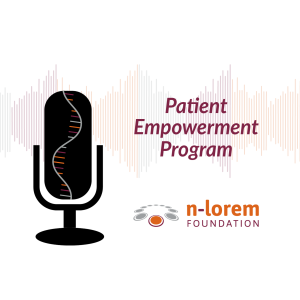
Wednesday Jul 26, 2023
Wednesday Jul 26, 2023
The liver has many important and magical metabolic functions. It converts the nutrients in our diets into substances that the body can use and filters toxic substances out from the body. You won't believe the sheer metabolic mayhem that happens behind the scenes!
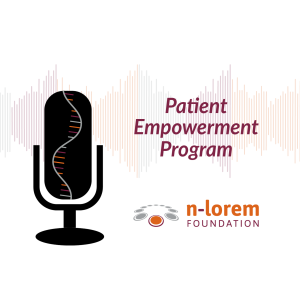
Wednesday Jul 12, 2023
Wednesday Jul 12, 2023
Argonaut Manufacturing Services Inc. CEO, Wayne Woodard, joins the Patient Empowerment Program to detail how Argonaut bottles vials of hope for n-Lorem patients. Argonaut is n-Lorem's provider of Sterile Fill-Finish for an optimal ASO. This means that the lyophilized ASO powder, which was manufactured with good manufacturing practices (GMP), gets formulated and aliquoted into sterile vials. The final product is tested for various attributes to ensure maximal quality. Once assessed and approved, the finished product is then ready to be administered to a nano-rare patient by a qualified research physician at an established institution.
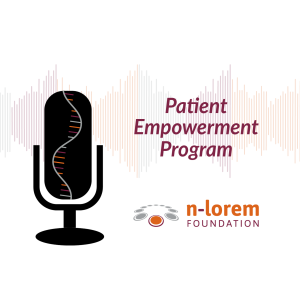
Wednesday Jun 28, 2023
Wednesday Jun 28, 2023
Gay Grossman is the mother of an n-Lorem patient and co-founder of ADCY5.org. She has been active in the rare disease space for 25+ years and continues to fight and advocate for patients every single day by connecting ADCY5 families, speaking at events, and informing the entire rare community. On Wednesday, Gay joins the Patient Empowerment Program podcast to discuss her daughter, Lilly, lessons that she has learned as a rare disease mom and advocate, the difficulty of gathering and sharing medical records before the creation of Ciitizen, and why newborn genomic sequencing should be introduced in the United States today.On This Episode We Discuss:0:00 What is Ciitizen?3:14 The difficulty of sharing medical records before Ciitizen5:55 Gay’s daughter, Lilly, is an n-Lorem patient10:00 Finding an initial pediatrician to help Gay and her family diagnose and understand Lilly’s gene mutation11:45 Lilly’s nightly seizures and wondering what it would take to receive a diagnosis15:05 How caffeine helps Lilly and others with ADCY5 mutations18:35 What Lilly is doing nowadays19:48 How Lilly’s genes were sequenced21:00 Advocating to introduce newborn sequencing into newborn screenings23:30 What was known upon diagnosis and other’s with ADCY5 mutations28:13 Lessons that Gay learned from her 25+ years of rare disease care and advocacy33:19 The progress n-Lorem has made since inception

